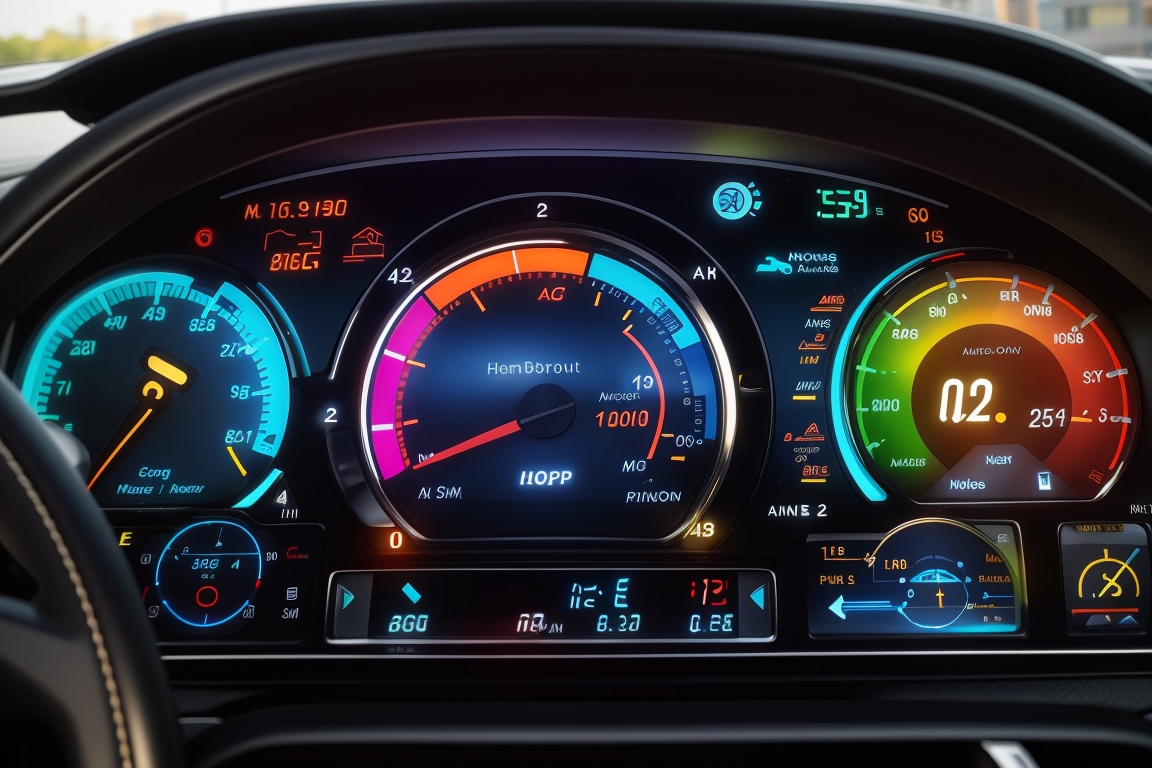In a world increasingly focused on sustainability and responsible resource consumption, the question of “How many miles per gallon of gas?” has never been more critical. As we navigate the challenges of climate change, rising fuel costs, and environmental concerns, understanding the fuel efficiency of vehicles has become a top priority for both consumers and manufacturers. In this article, we delve into the concept of miles per gallon (MPG) and explore its significance in today’s automotive landscape. Whether you’re in the market for a new car, seeking ways to reduce your carbon footprint, or simply curious about the technology behind fuel-efficient vehicles, this exploration of MPG will provide you with valuable insights into an essential aspect of modern transportation.
Key Takeaways
- Gas mileage is an important factor to consider when purchasing a car.
- Factors affecting gas mileage include vehicle weight, speed, driving habits, maintenance, and environmental conditions.
- Hybrids offer a fuel-efficient alternative to traditional gasoline-powered vehicles.
- The vehicle’s history and maintenance, such as regular oil changes and tire inflation, affect fuel economy.
Average Gas Mileage for Compact Cars
You should consider the average gas mileage for compact cars, which is around 30 MPG. Compact cars are known for their fuel efficiency, making them a great choice for those looking to save money on gas.
With an average of 30 MPG, you can expect to go a long way on a full tank. This means fewer trips to the gas station and more money in your pocket.
Not only will you be saving money, but you’ll also be reducing your carbon footprint. Compact cars are designed to be fuel-efficient, making them an environmentally friendly option.

Gas Mileage for Midsize Sedans
Midsize sedans typically offer gas mileage ranging from 25-35 MPG, making them a popular choice for those seeking a balance between fuel efficiency and spaciousness. With their moderate size, these sedans provide enough room for passengers and cargo without compromising on gas mileage.
Whether it’s for daily commuting or long road trips, midsize sedans provide a reliable and efficient option. The range of 25-35 MPG ensures that you can travel more miles with less fuel consumption, saving you money in the long run.
Additionally, these sedans often come equipped with advanced technology features and safety systems, making them a practical choice for families and individuals alike.
Varying Gas Mileage for SUVs
When considering SUVs, it’s important to note that gas mileage can vary widely, with some models achieving around 20 MPG and others as high as 35 MPG. The difference in gas mileage can be attributed to various factors such as the size and weight of the SUV, the engine type, and the overall design of the vehicle.
SUVs with smaller engines and hybrid technology tend to have better gas mileage, while larger, more powerful SUVs may have lower gas mileage due to their increased weight and higher fuel consumption. Additionally, driving habits and conditions can also impact the gas mileage of an SUV.
It’s essential to research and compare the gas mileage of different SUV models to make an informed decision and choose a vehicle that aligns with your fuel efficiency priorities.
Gas Mileage Range for Trucks
If you’re considering a truck, it’s important to note that the gas mileage range can vary from 15-25 MPG, depending on the size and type of truck.
Trucks are known for their versatility and capability, but they do tend to consume more fuel compared to smaller vehicles. The gas mileage of a truck primarily depends on factors such as engine size, weight, and aerodynamics.
Smaller trucks and those with more efficient engines may achieve closer to 25 MPG, while larger trucks with powerful engines may be closer to 15 MPG.
It’s essential to consider your specific needs and usage when choosing a truck, as the gas mileage can impact your fuel expenses and overall cost of ownership.
Equivalent Gas Mileage for Electric Vehicles
You can achieve equivalent gas mileage of over 100 MPG with electric vehicles, making them a highly fuel-efficient and cost-effective option.
Unlike traditional gasoline-powered vehicles, electric vehicles run on electricity stored in batteries, allowing them to travel long distances without consuming any gasoline.
By utilizing electric power, electric vehicles can achieve exceptional gas mileage, reducing the need for frequent fuel stops and saving you money on gas expenses.
Additionally, electric vehicles produce zero tailpipe emissions, making them environmentally friendly and contributing to cleaner air quality.
With advancements in technology, the range and performance of electric vehicles continue to improve, making them a practical and sustainable choice for individuals looking to reduce their carbon footprint and save on fuel costs.
Frequently Asked Questions
What Are the Benefits of Good Gas Mileage?
Good gas mileage benefits you in multiple ways. It saves you money on fuel expenses, reduces greenhouse gas emissions, promotes energy independence, contributes to sustainability, and improves air quality for better public health.
How Does Vehicle Weight Affect Gas Mileage?
Vehicle weight affects gas mileage by decreasing it. Heavier vehicles have lower gas mileage due to the increased energy required to move them. So, if you have a heavier vehicle, you can expect lower gas mileage.
What Are Some Driving Habits That Can Reduce Gas Mileage?
Driving habits such as excessive speeding, rapid acceleration, and frequent braking can really put a dent in your gas mileage. So, if you want to save some money at the pump, it’s best to avoid these habits.
How Do Extreme Temperatures and Altitude Impact Gas Mileage?
Extreme temperatures and altitude can affect your gas mileage. Cold temperatures can decrease fuel efficiency due to engine warm-up time, while high temperatures can increase fuel evaporation. At higher altitudes, the thinner air can also impact engine performance and reduce gas mileage.
What Factors Contribute to Better Fuel Economy for Vehicles?
Factors that contribute to better fuel economy for vehicles include maintaining proper vehicle condition, such as regular oil changes and tire inflation, driving habits like avoiding rapid acceleration, and considering the weight of the vehicle.
Conclusion
So, now that you’ve learned about gas mileage and its importance, it’s time to put your knowledge into action. Remember, factors like vehicle weight, speed, driving habits, and maintenance all contribute to your vehicle’s fuel efficiency.
By making conscious choices and adopting fuel-saving habits, you can improve your gas mileage and save money on fuel expenses. So, start implementing these tips and see just how many miles per gallon of gas your vehicle can achieve.
